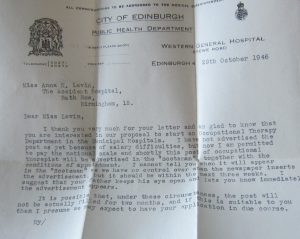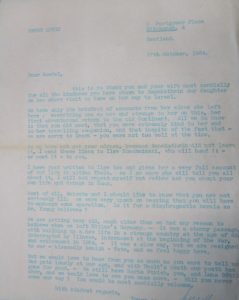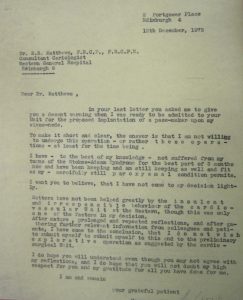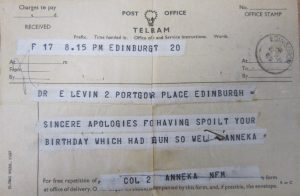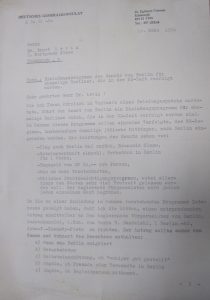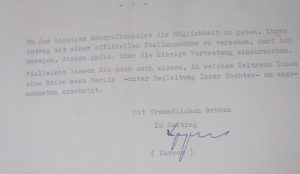
This resource gives an insight into the life of Jewish-German neurologist Dr. Ernst Levin, who fled Nazi Germany in the 1930s and emigrated to Edinburgh with his wife Anicuta and their daughter Annekathrin. His personal collection was donated to Lothian Health Services Archive (LHSA) to supplement Ernst’s existing medical archive and it contains much correspondence between family and friends, dating as far back as the 1870s, as well as passports, photographs, sketchbooks, and various other personal artefacts. The following content hopes to emphasise the value of archiving personal histories as an insight into particular moments in history.
Ernst’s private correspondence gives an extraordinary insight into the life of a Jewish refugee forced to flee Germany under Hitler’s Nazi regime. This collection is in dialogue with other projects on Jewish history across the University of Edinburgh and the UK: academic Hannah Holtschneider, lecturer at the University of Edinburgh, heads the ‘Jewish Lives’ project which is a similar project of much broader scope.

Ernst was born in 1887 to wealthy Jewish parents Willy and Natalie Levin, great patrons of the arts in Berlin. His parents were friends with famous composer Richard Strauss, in whom Ernst maintained a great interest for the entirety of his life. Ernst’s brother Walter Levin, who tragically took his own life in 1923 after severe paralysis from contracting Polio, had emigrated to Israel in 1910. Their sister Trude later married Oskar Treidel, the man on whose farm Walter had worked on. As a result, the Treidel-Levins created a link for the family to Israel.
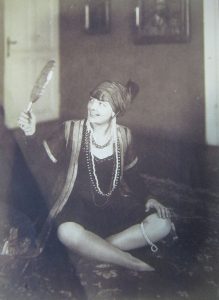

After studying medicine in Berlin, Ernst moved to Munich in the 1910s and served in the First World War on the French front line, marrying Bucharest-born Anicuta Belau in 1917. The couple moved in the artistic circles of the Weimar Republic, maintaining friendships and correspondence with prominent artists and composers, among them the painter Max Unold and his wife Grete. Ernst had to flee Berlin when Hitler rose to power and re-established his family in Edinburgh in the 1930s, working with prominent neurosurgeon Norman Dott. In 1940, Ernst was interned at a camp in Douglas, on the Isle of Man, as he acquired the status of ‘enemy alien’ when the war escalated into its critical stages. Anicuta and Annekathrin were displaced, along with other alien women, to Glasgow, as they could no longer reside within twenty miles of Scotland’s east coast.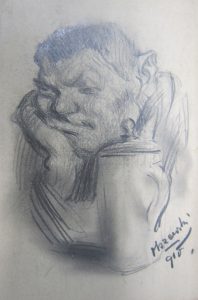
Their daughter, Annekathrin Levin, was in her late teens when she arrived in Edinburgh to start a new life. Correspondence between her and her parents indicates that the family maintained a bilingual home life. Annekathrin travelled during her youth, around Europe and to Israel. She had a career in Occupational Therapy, an emerging discipline at the time, and worked at the Birmingham Accident Hopsital, from which she sent photos and letters that survive in the collection. She returned to Edinburgh in her late 40s, buying a cottage in Colinton so that Ernst might move in to her bungalow when his health deteriorated, and began working as a secretary and translator at Edinburgh-based electrical engineering firm, Ferranti’s. In later life, Ernst recovered his mother’s property in Cologne and organised the family’s inheritance, also being paid compensation by the Association for Jewish Refugees. He stayed in Edinburgh until he died, maintaining regular correspondence with the branches of his family which had settled in Israel.
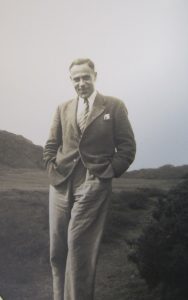

ABOUT
My name is Kimyana Scherer and I’m currently an intern working with Lothian Health Services Archive (LHSA) as part of the Employ.Ed scheme run by the University of Edinburgh Careers Service: http://www.ed.ac.uk/careers/looking-for-work/internships/employed/employed-on-campus. My role involves cataloguing and scoping the recently donated personal collection of Jewish-German neurologist Ernst Levin, who emigrated to Edinburgh in 1936 following some years of working in the city with neurosurgeon Norman Dott. LHSA look after local National Health Service records of historical value, cataloguing and preserving them so that they are accessible to the public upon request. To find out more, visit our frequently updated blog.
Through these posts I hope to provide a greater insight into the story of Ernst, Anicuta, Annekathrin and their loved ones. These personal narratives each create a small window into historically crucial moments in time: arguably, the most valuable function of the personal archive is to preserve the ‘humanity’ in history, which might otherwise be lost in the process of artefact selection and preservation based on the apparent ‘importance’ of the subject being studied.
I hope you enjoy!
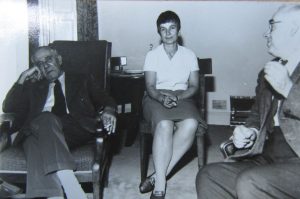
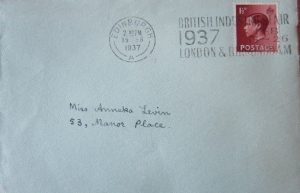
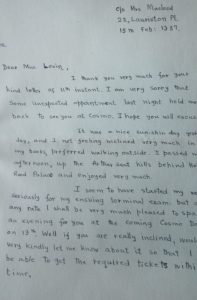
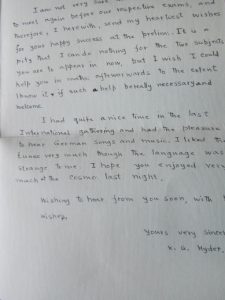
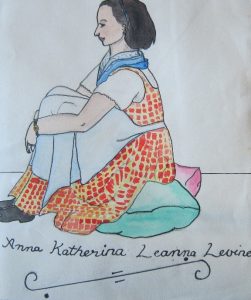
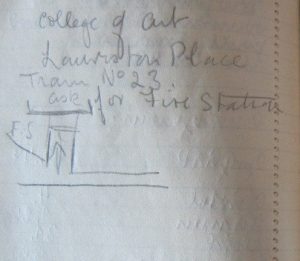
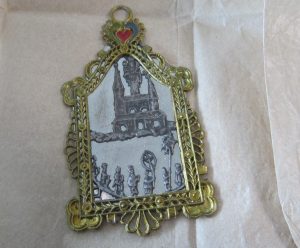
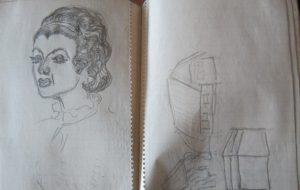
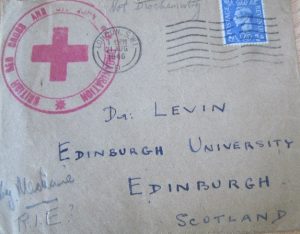
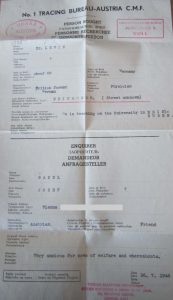
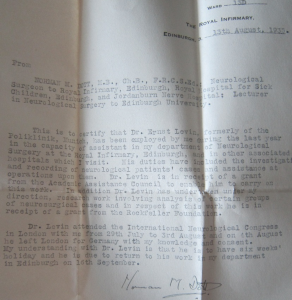
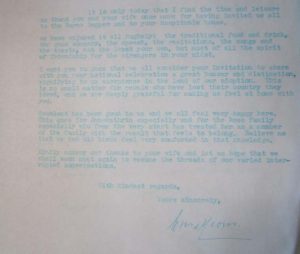
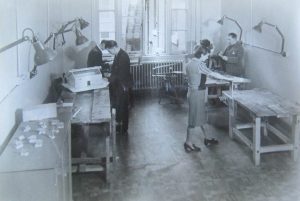
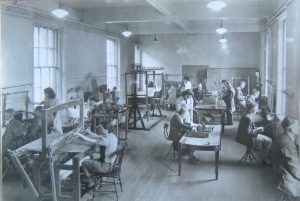
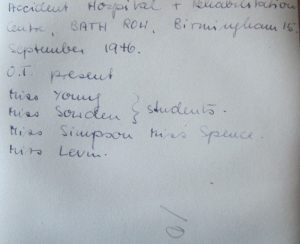 ment. She was active around the time that the National Health Service was introduced in the United Kingdom in 1948. In her letters, she records some of the anxiety amidst the medical staff regarding this drastic change and fears for new structuring and administration of hospitals.
ment. She was active around the time that the National Health Service was introduced in the United Kingdom in 1948. In her letters, she records some of the anxiety amidst the medical staff regarding this drastic change and fears for new structuring and administration of hospitals.